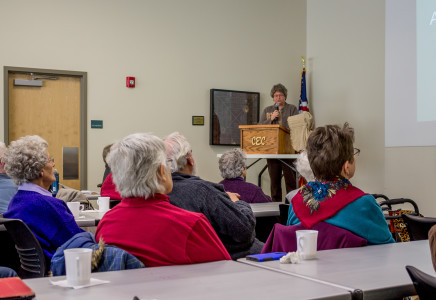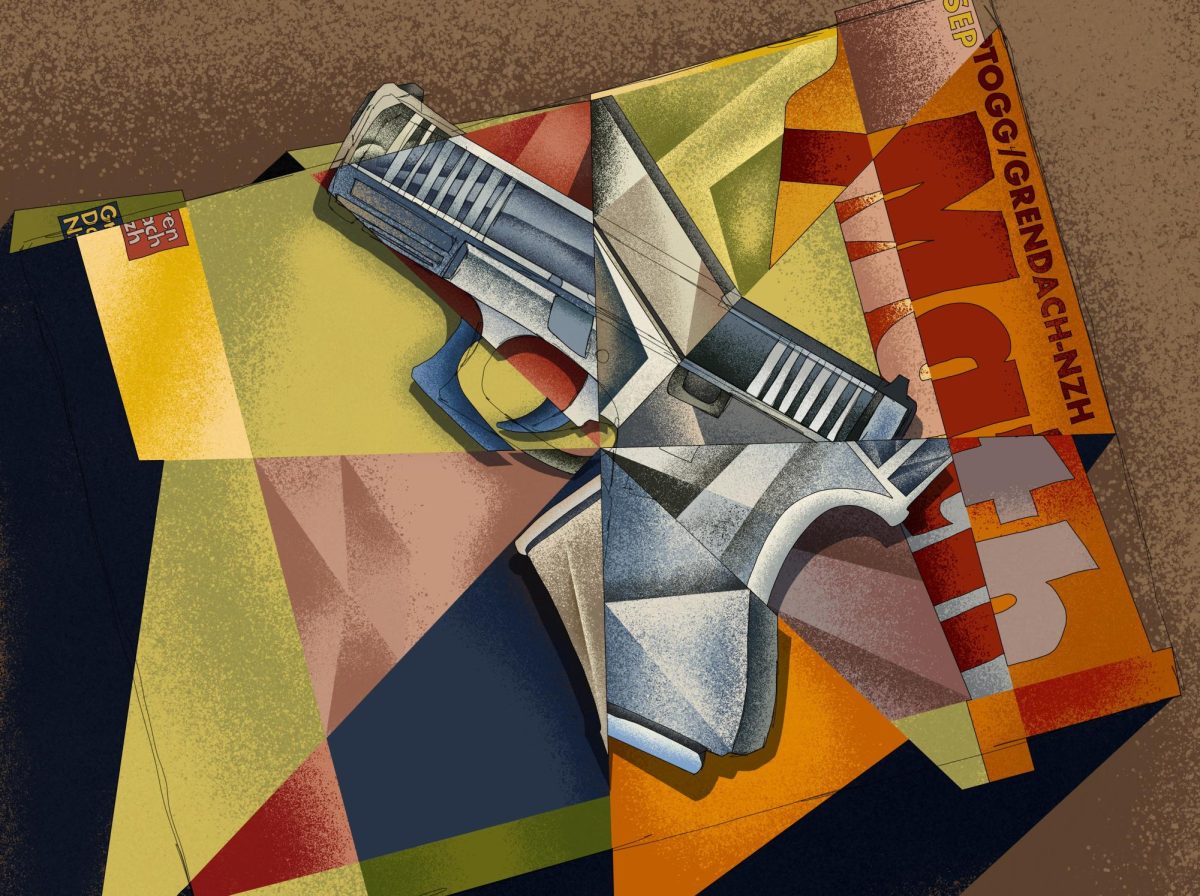Many Grinnellians know the names J.B. Grinnell, Harry Hopkins and Henry S. Conard and the contributions they made to Grinnell, but fewer know the names and stories behind the women who have made significant contributions to Grinnell’s history. The Grinnell Historical Museum, the Community Education Council and Drake Community Library brought the distinguished women in Grinnell history to life in the presentation “Trailblazers: Notable Women of Grinnell.” The course was adapted from a longer historical exhibition done by the Grinnell Historical Society, in partnership with Drake Library, three years ago for Women’s History Month, which featured 22 women from Grinnell’s history.
Presenters Julie Young, Dorrie Lalonde, Cheryl Neubert, Karen Groves, Barb Lease and Betty Moffett selected eight women from the original exhibit to present at Drake Library.

“Some of the women grew up here and then went off and did their famous things and never came back. So women who spent much of their time here … was probably one big reason why we chose these eight,” presenter Barb Lease said.
The chosen women were varied and included pioneer women, early cat photographers, teachers, politicians and abolitionists. These women represent, in many ways, Grinnell’s progressive history. Nearly all of the women presented were highly educated as well, which is perhaps a nod to the value that the College has brought to the community since its founding.
“What really intrigued me about all of our women was the level of education they attained. Even [the pioneer women] were well educated,” presenter Dorrie Lalonde remarked. “Is it something about the women who have impact? Is it something about Grinnell and the accessibility of Iowa College? I don’t know what the answer is.”
“People that come to Grinnell are intelligent and cultured,” historian Julie Young added.
Researching and presenting on these women gave the female historians a chance to connect more deeply with their community.
“When you work on something like this, and get to know people of the past, you really develop … a sense of place in your community,” Young said. “The more you know, the more in touch with everything here you feel.”
In addition to connecting with the community of Grinnell, the researchers found a special kinship with the women they were researching.
“From the very beginning, we’ve worked with these women, we came to know them, we developed an affection for them,” Lalonde said. “And so we really have a very close relationship with all our women. … It’s just a very warm, familial feeling.”
The historians used a variety of sources, including the College’s Iowa Room in Burling Library, the Historical Societies records and other documents from all across the country.
The course was part of the Community Education Center’s “Bucket Courses,” which are marketed as teaching “Everything you want to learn before you kick the bucket.” The idea for these courses came from Community Education Board member, Joanne Bunge.
“Grinnell has a host of lifelong learners and these courses provide an opportunity for them to continue their education in a practical and efficient form,” Bunge wrote in a statement to The S&B.
The Bucket Courses draw heavily on professors, both current and emeritus, as presenters, which Bunge sees as one of the primary benefits.
Even though not all of our speakers are from the College, we have exceptional professors … and the Bucket Courses provide a venue for the community to realize the gem we have in our community,” Bunge wrote. “I saw myself as a link between the community, that had a need, and the College.”
The next Bucket Course will be four sessions entitled “Criminal Brains,” given by Clark Lindgren, Neuroscience.
Previous Bucket Courses can be viewed online at https://www.youtube.com/user/grinnellcec.





























































